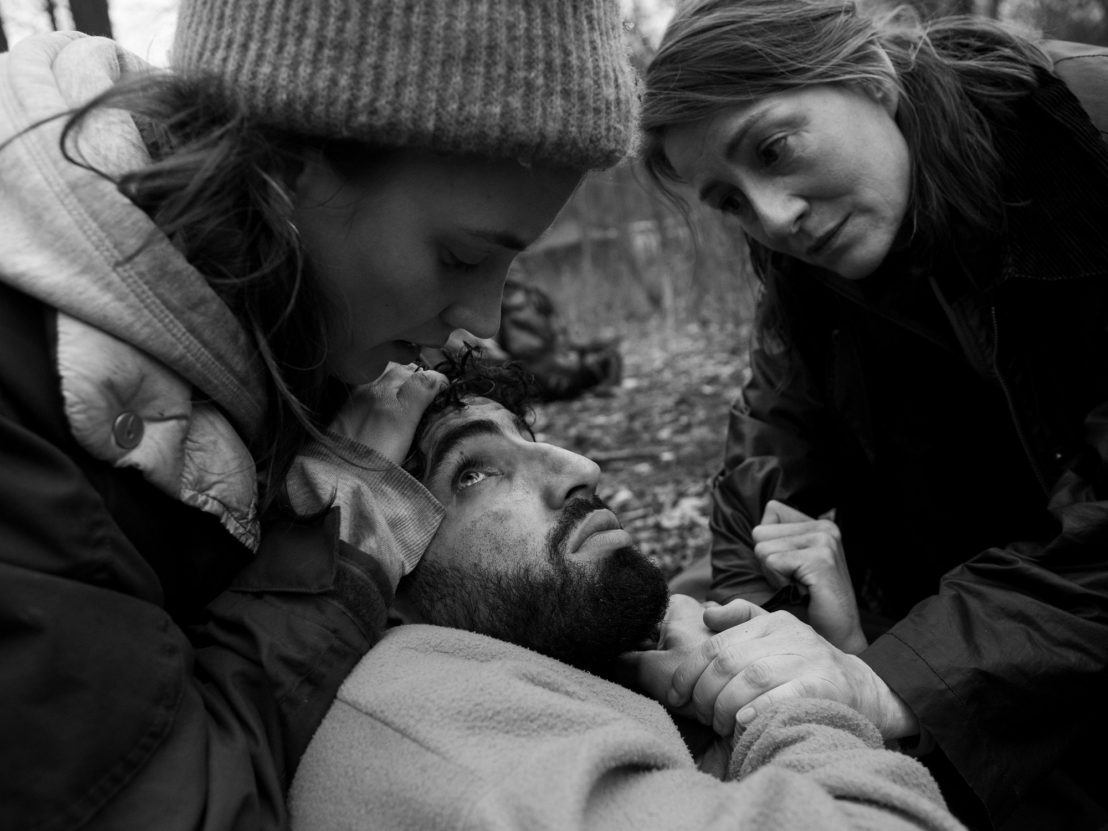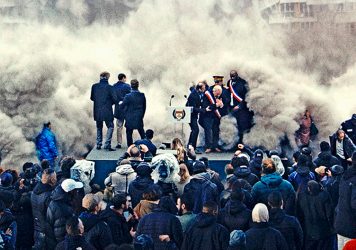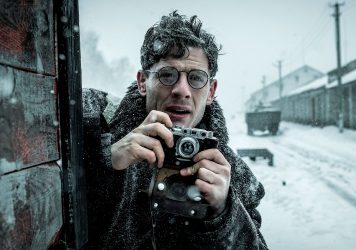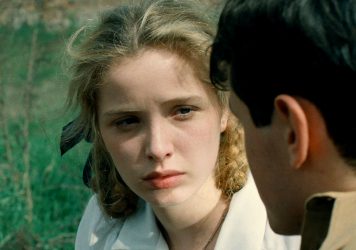
Veteran filmmaker Agnieszka Holland offers a stirring, stark depiction of the refugee situation in Europe, as Syrians fleeing war face harrowing interrogation at the Polish-Belarusian border.
A cursory scan of this fall’s film festival lineups would suggest that the ongoing immigration crisis has, rightly, claimed a controlling share in European outrage.
In Ladj Ly’s Les Indésirables, French housing authorities funnel refugees into high-rise slums until they can be demolished entirely; in Matteo Garrone’s Io Capitano, asylum-seekers make the perilous odyssey from Africa to Sicily, a journey that the Italian government all but openly hopes they won’t survive; and in Agnieszka Holland’s bruising, ultimately galvanizing Green Border, those fleeing war in Syria find themselves trapped in a Kafkaesque cycle of state-sanctioned violence as they’re jettisoned back and forth across the Polish-Belarusian divide. (Meanwhile in America, residents of the city with the Statue of Liberty scream at newcomers that they’re not welcome, while congressmen proudly show off the circular blades they’ve installed in the barriers floating on the Rio Grande. Satan ought to break ground on a new wing for an increasingly overcrowded hell.)
With unflinching starkness, Holland traces a path along a new trail of tears fraught with danger for those forced to travel it, from natural hazards like quicksand and hypothermia to the omnipresent threat of the border patrol agents. In a racism-charged training session, they’re instructed not to kill anyone, but to swiftly dispose of any bodies in the event of a mishap. Most of the brutes receive this as if learning about an incidental perk of the job.
One of the recruits (Tomasz Włosok) doesn’t look so jazzed about the prospect of human rights violations, the first seedling of doubt in his work that will sprout with time into a change of heart — but not completely, and not in any way that puts him in danger. As Holland expands her aperture to cover this penitent Gestapo as well as a psychotherapist (Maja Ostaszewska) turned radical activist putting her progressive money where her mouth is, the question of what’s to be done with all this guilt raises and refuses to answer itself. (And though the archetype of the converted cop rings false, his arc illustrates the film’s implied mission to tear off the blinders by putting inhumanities in frank view.)
Holland has talked about choosing to shoot in black-and-white in order to evoke World War II reels, and the specter of the Holocaust casts a long shadow over a country now reiterating the genocide it faced less than a century ago. Holland forces the matter of public responsibility through one craven minor character who’d rather preserve herself than bend the law to help those in need, a stand-in for the non-Jewish Poles closing their doors in an extraordinary crisis, which, like the one now at hand, demanded ordinary citizens assume some personal risk for the greater good.
The first section wields the greatest and most terrible emotional power, however, as we follow a small band of immigrants through a gauntlet of abuse and misfortune which they have no choice but to meet with resilience. With mighty empathy humbled by their courage, Holland catalogs the innumerable struggles facing a family en route to join relatives in Sweden: keeping your phone charged while lost in the international woods, caring for infants and the elderly, being understood by the men barking orders at you in a foreign language. And in crucial contrast with last year’s Tori and Lokita (which shares a cast member with Green Border in the profound-eyed Joely Mbundu), her film knows to stop short of heaping full-bore sadism upon her harried subjects, making time for the respites of calm and play that the spirit manufactures for itself out of necessity in dire times.
It’s a testament to the harshness of her political critiques that Holland has already received death threats and governmental condemnation in her home of Poland, portrayed here as a land of unfathomable cruelty punctured by scant beams of hope. But her broadside against callousness and indifference speaks for itself and affirms the sanctity of life through the superhuman distance some will go to protect theirs.
Published 10 Oct 2023

By Mark Asch
Ladj Ly’s follow-up to his Cesar award-winning Les Misérables is a hyperbolic state-of-the-nation address that lacks the logic and fire of that first feature.

By Ian Mantgani
Agnieszka Holland’s biopic of Welsh journalist Gareth Jones is one of the most powerful films at this year’s Berlinale.

Agnieszka Holland’s masterpiece Europa Europa is harrowing and gorgeous – and now available to watch online.